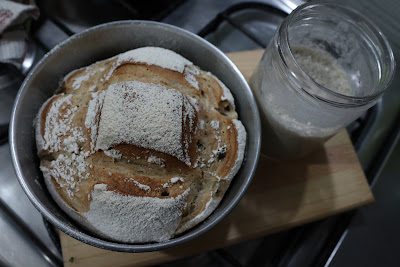The Benefits of Adding Vinegar to Poached Eggs: A Comprehensive Guide
If you're a fan of poached eggs, you've probably wondered why vinegar is added to the cooking water. Well, wonder no more! In this article, we’ll dive into the benefits of adding vinegar to poached eggs and how it helps create the perfect poached egg.
Why Add Vinegar to Poached Eggs?
Adding vinegar to poached eggs is not a new concept, but instead a solution discovered by accident. When people were trying to figure out how to keep their eggs from breaking while poaching, they discovered that adding vinegar to the water helped keep the eggs from breaking. This discovery led to the use of vinegar in many other ways, such as a marinade or salad dressing. However, when it comes to poached eggs, vinegar plays a critical role.
How Does It Help?
Adding vinegar to the poaching water has several benefits. The acidity of the water helps to denature the protein in the egg whites, making it easier to make the egg whites set and keep their shape. Egg whites are mostly made up of protein, namely albumin, and water. When heat is applied to egg whites, they will harden. By denaturing the protein in the egg whites, vinegar helps make them firm, so they hold their shape better when cooked.
Additionally, adding vinegar to the water helps keep the yolk runny, no matter how long you cook the egg. When vinegar is added, the egg white coagulates quickly, while the yolk remains runny. If you don’t add vinegar to the water, the egg white will cook more slowly, which will cause the yolk to harden.
Do the Eggs Taste Like Vinegar?
The amount of vinegar added to the water is very minimal and will not affect the taste of the poached egg. The acidity of the water is raised enough to cook the eggs better, but not enough to make them sour or vinegary in flavor.
How Much Vinegar Should You Use?
There is no specific amount of vinegar needed to achieve perfect poached eggs. Different types of vinegar will have varying acidity levels. White wine vinegar is a popular choice, but there are other types you can experiment with until you find the one that works best for you. As a general rule, you can use about one tablespoon of vinegar per quart of water.
Can You Make Poached Eggs Without Vinegar?
Yes, you can make poached eggs without vinegar. There are other methods that involve putting salt directly on top of the boiling water before pouring in the eggs or boiling the eggs separately and then combining them. While these methods work well, they require more effort than simply adding vinegar to the water.
Tips for Perfect Poached Eggs
To make perfect poached eggs, here are some tips you can follow:
Use a Ramekin or Small Bowl: Take the egg out of its shell and put it in a ramekin or small bowl. Then, place the ramekin into the simmering water. This technique helps to ensure the egg yolk doesn’t break and helps to catch any stray bits of eggshell.
Add a Little Amount of Vinegar: Adding vinegar to the water helps the egg whites set faster and hold their shape better. However, if you don’t use vinegar, you can still cook the egg whites. You’ll just need to cook them for a longer period of time.
Swap the Vinegar for Lemon Juice: If you don’t have vinegar , you can swap it for lemon juice. Lemon juice has similar properties to vinegar when it comes to poaching eggs, helping the whites stay soft while the yolks become firm.
Don’t Overcook the Eggs: Now that you know not to overcook your poached eggs, let's make sure they come out perfectly every time. First, start by filling a saucepan with about 3 inches of water and bring it to a simmer. Next, add a splash of vinegar to the water - this will help the egg whites coagulate faster.
Once the water is simmering and you've added your vinegar, it's time to gently crack your eggs into the water. The key here is to make sure the eggs don't break and the whites stay together. You can achieve this by cracking the eggs into a small bowl first and then carefully tipping them into the water.
Now, let the eggs simmer for about 3-4 minutes, or until the whites are set but the yolks are still runny. This is the perfect timing for a deliciously runny yolk that will make your taste buds sing.
Once the eggs are done, carefully remove them from the water with a slotted spoon and place them on a plate lined with a paper towel to absorb any excess water. Season with salt and pepper to taste, and enjoy your perfectly poached eggs!
Remembre, practice makes perfect when it comes to poached eggs, so don't be discouraged if your first attempts don't turn out quite right. With a little patience and practice, you'll soon be a poached egg pro!

